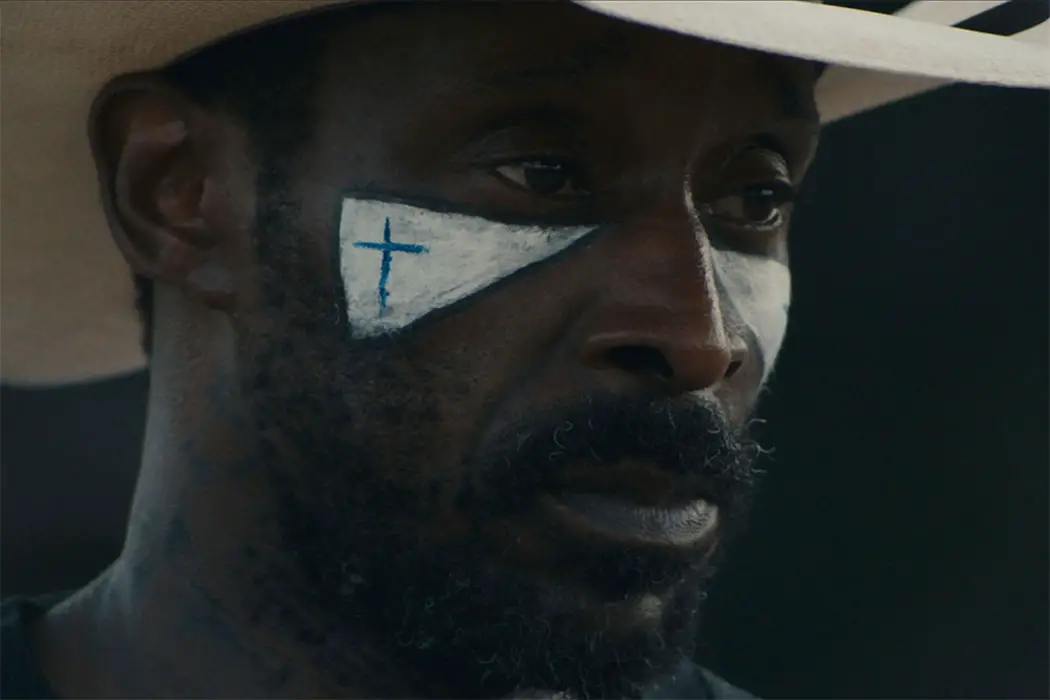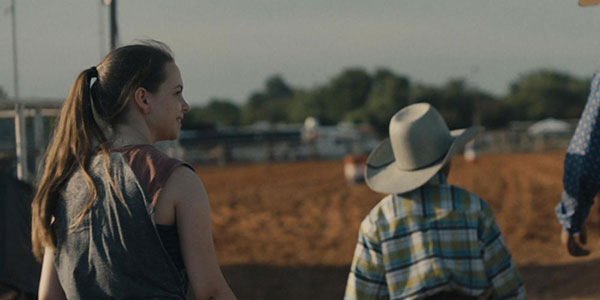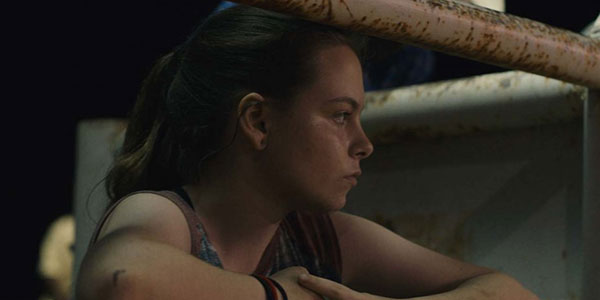BULL: A Remarkably Adept Directorial Debut

David is a film aficionado from Colchester, Connecticut. He enjoys…
The modern Western is a genre I have become increasingly fascinated by. Taking themes akin to the classic Western, it transfers them to modern times, usually touching on more present topics in the process. In recent years, director Chloé Zhao has dominated the field, with films like Songs My Brothers Taught Me and the independent hit The Rider.
Now, with Annie Silverstein‘s Bull, we have yet another successful addition to this genre. Though touching on some similar topics as The Rider like rodeos and the American South, it also spans out into its own territory, touching on themes as wide-ranging as drugs, race, family, and more.
The Rodeo
Bull is primarily the story of two individuals. They are Kris (Amber Havard) and Abe (Rob Morgan). Kris is a 14-year-old girl who lives with her sister and grandmother, as her own mother has been sent to prison. She’s occasionally reckless as a result. Abe is an older African-American former bull rider who now works both as a coach to young aspiring riders and as a bullfighter, whose job is to distract the bull when a rider falls off so that they can run off to safety. In recent years, his injuries have caused him to become self-destructive, acting against the wishes of doctors and using drugs to compensate.
The relationship between the two begins when Kris breaks into Abe’s house one night while he is away at a rodeo, and she invites friends over to drink and party. Arriving home the next morning, Abe catches Kris running away, and subsequently calls the police. In exchange for criminal charges, he allows her to work for him, first cleaning up the mess she made and then helping out around the house. This leads to Kris following Abe to a rodeo, where she starts to become fascinated by the sport.

If you think you know where the story is going, though, think again. Though it may seem to be the type of inspiring sports story where a veteran of the sport teaches a young talented individual yearning to learn the ropes (perhaps something you’d see in a Disney movie), in actuality, it’s far from it. There are inklings that this is where the two could be headed, but there is far more going on here. Kris’s unorthodox family life, for example, is an interference, as is Abe’s self-destructive behavior, ignoring injuries and still keen on being a bullfighter despite that.
In that way, Bull doesn’t seem to be much about the sport of bull-riding, though it does have quite a few intense scenes set inside the ring. Instead, it’s more about what drives people to the sport; the manic violence, the intensity, and the freeing nature of it. It’s seen in Abe’s unwavering desire to quit his involvement, and in Kris’s inspired response to it despite little prior interest, catching the bug after just her first ride. Much like its depiction in The Rider, it’s a sport that can bring people together despite it appearing mindlessly violent from the outset.
What links Kris and Abe even more than bull-riding, though, is just how reckless they can be outside of it. Drugs are a subject that comes up on both sides, timely given the long-lasting opioid crisis, yet you can’t quite blame either one for abusing or becoming involved in the business. Like all of us, Kris and Abe are just trying to get by. Annie Silverstein and co-writer Johnny McAllister‘s rich screenplay is strewn with relatable elements, whether it’s drugs, the display of the American South, or just that recognizable element in all of us, trying to find purpose in a world that sometimes seems to be stacked against us.
Occasionally Aimless, But Mostly Stays On Track
As varied as Silverstein‘s story is, though, it sometimes does lose its singular voice. Due to the film’s relatively short length and yet many subplots that fill its space, it sometimes appears to waver between stories at a weary pace. Much like a classic Mark Twain novel, Bull isn’t quite concerned with just how many stories it can tell at once, but it doesn’t have the right balance all the same. As a result, some of the more powerful themes, such as the drug selling subplot by Kris and what it results in, don’t quite have the same impact.

One of the potential reasons for this is that Silverstein notably uses little music throughout. Perhaps in an effort to simply keep you engaged in the characters and their interactions, it instead forces you to pay attention. Personally, though, I think non-diegetic sound can be quite helpful to set a mood. It’s used throughout much of the aforementioned The Rider, as an example, and it drives that narrative all the more.
Where Silverstein‘s film does work quite well is due to its cinema verité style. Bull is filmed using almost primarily handheld cameras, placing you in the midst of the story. During some moments, such as a tense interaction between the characters Kris and Abe, you really feel the veracity of it.
Natural Acting
What also helps is that most of the characters in Bull are played by relatively unknown actors. Rob Morgan may be the best known, an actor that has carved out a niche for himself in the independent film market over the years (in addition to playing one of the more fun supporting characters in the Marvel Netflix universe). Here, he brings a wide range of emotions to a complicated character, from the angst and loneliness that results from his self-destructive behavior, to at other moments glimpsing the kindhearted nature that he hides within.
Playing opposite him is Amber Havard as Kris. As her first film, Havard strikes quite an impact, playing the reserved teenaged character with a remarkable level of sophistication. I could easily see the role being the starting point for a successful career. For supporting characters, there aren’t quite as many that stand out, and performances do occasionally come off as wooden. Still, it could be argued that such performances add to the genuine nature of the film.
Bull: Conclusion
Bull might not be the game-changer modern Western that a movie like The Rider achieved so diligently. However, it deserves to be mentioned in the same breath, and to be seen if movies like that appeal to you. It’s slow yet impactful, telling the story of a small town yet one that is relatable to people of all walks of nature. It’s a feature worth checking out.
What are your thoughts on Bull? Are you a fan of modern Westerns?
Bull was released to limited theaters on March 20, 2020 and will be on VOD on May 1, 2020.
Does content like this matter to you?
Become a Member and support film journalism. Unlock access to all of Film Inquiry`s great articles. Join a community of like-minded readers who are passionate about cinema - get access to our private members Network, give back to independent filmmakers, and more.
David is a film aficionado from Colchester, Connecticut. He enjoys writing, reading, analyzing, and of course, watching movies. His favorite genres are westerns, crime dramas, horror, and sci-fis. He also enjoys binge-watching TV shows on Netflix.













